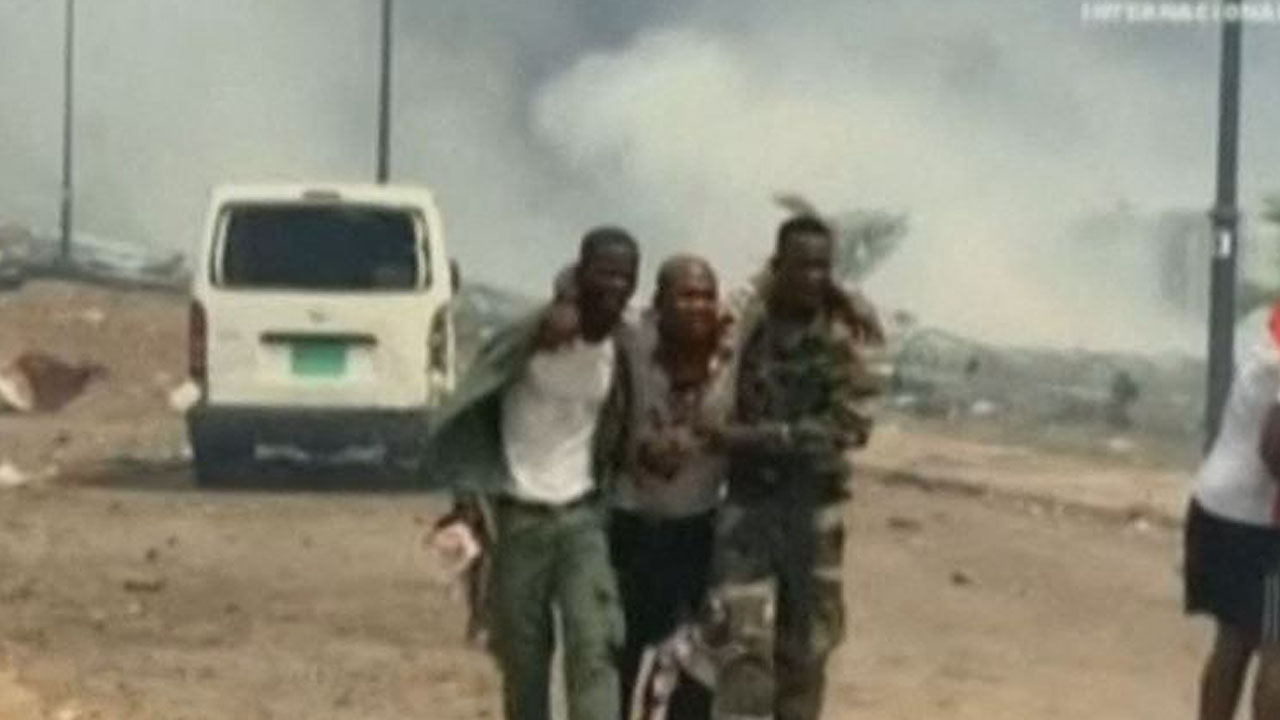
Blasts that levelled a military camp and the surrounding populated area in Equatorial Guinea at the weekend claimed “far more” lives than the official death toll of 105, Human Rights Watch said Wednesday, urging an independent investigation into the disaster.
President Teodoro Obiang Nguema, who has ruled the oil-rich country with an iron fist for 42 years, blamed the military for “negligence” in stocking ammunition so close to residential areas.
On Tuesday, state television reported 105 people were killed and 615 were injured by the conflagration at the camp of Nkoa Ntoma, outside the economic hub Bata, home to 800,000 of the country’s 1.4 million people.
But HRW, citing local rights group EG Justice, said that “based on the number of bodies pulled from the rubble, the actual number of victims is much higher.”
It also urged donors and aid groups to send support directly to victims and their families rather than through the government, “given high levels of corruption in Equatorial Guinea”.
The four cataclysmic explosions flattened the camp, which houses special forces, gendarmes and their families, as well as nearby residential areas on Sunday afternoon.
By the evening, Obiang announced a probe into the disaster, stating that the blasts were set off by a local farmer practising slash-and-burn agriculture near stores of explosives and munitions.
The defence ministry said the blasts were caused by heavy-calibre munitions and emitted “shock waves which totally destroyed numerous homes nearby”.
Obiang accused camp officials of negligence, charges he repeated on Tuesday.
But HRW said “unverified accounts… allege that the fire was started by soldiers ordered to burn brush and that it then spread to the armoury, or that it was started during training on the use of explosives gone awry.”
The only Spanish-speaking country in sub-Saharan Africa, Equatorial Guinea is one of the continent’s most insular nations.
Adding to the difficulty in understanding the full scale of the tragedy, air and sea links have been shut off for weeks because of coronavirus restrictions.
Only military and government aircraft have travelled to the site on the mainland from the island capital Malabo since the explosions.
Calling for an independent investigation by international experts, HRW researcher Sarah Saadoun said in Wednesday’s statement: “Regardless of what caused the blast, Equatorial Guineans deserve to know why the military is storing explosives in the middle of a populated area.”
Malabo has made numerous appeals for international aid since the disaster, with Obiang pointing to a severe economic crisis fuelled by the Covid-19 pandemic and the plunge in the price of oil, the country’s main source of revenue.
But the HRW warned: “Corruption has long stymied the oil-rich country from developing public services and providing social protection commensurate with its resources, and continued opaque governance puts any aid directly disbursed to the government at high risk of being looted.”



